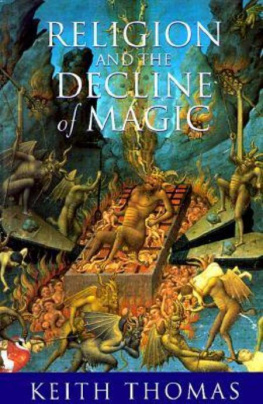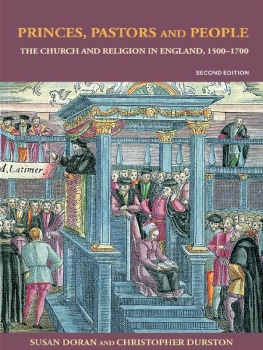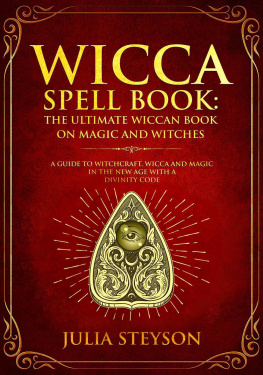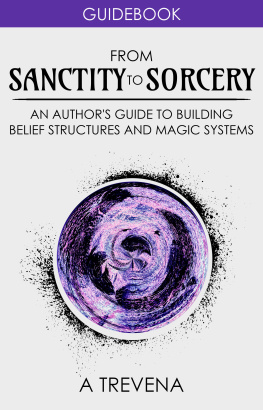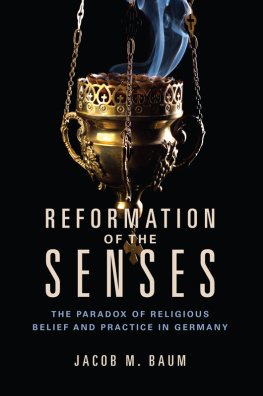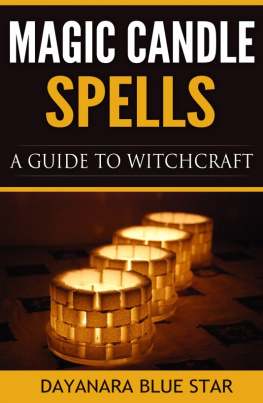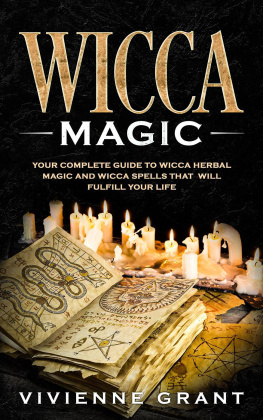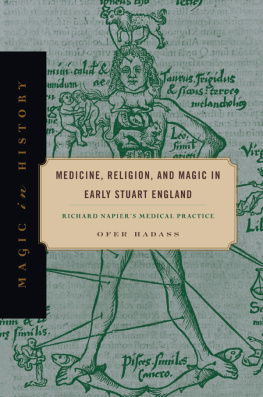PENGUIN BOOKS
RELIGION AND THE DECLINE OF MAGIC
Keith Thomas is President of Corpus Christi College, Oxford and a former President of the British Academy. He was previously Professor of Modern History and Fellow of St John's College. He has written extensively on the social and intellectual history of the early modern period. He is the general editor of the Past Masters series (Oxford University Press) and of Oxford Studies in Social History (Clarendon Press). Religion and the Decline of Magic, his first book, won one of the two Wolfson Literary Awards for History in 1972. He is the author of Man and the Natural World: Changing Attitudes in England 15001800, which is also published in Penguin, and the editor of The Oxford Book of Work (1999). He was knighted in 1988 for services to the study of history.
RELIGION AND THE DECLINE OF MAGIC
STUDIES IN POPULAR BELIEFS IN SIXTEENTH- AND SEVENTEENTH-CENTURY ENGLAND
KEITH THOMAS

PENGUIN BOOKS
PENGUIN BOOKS
Published by the Penguin Group
Penguin Books Ltd, 80 Strand, London WC2R 0RL, England
Penguin Putnam Inc., 375 Hudson Street, New York, New York 10014, USA
Penguin Books Australia Ltd, 250 Camberwell Road, Camberwell, Victoria 3124, Australia
Penguin Books Canada Ltd, 10 Alcorn Avenue, Toronto, Ontario, Canada M4V 3B2
Penguin Books India (P) Ltd, 11 Community Centre, Panchsheel Park, New Delhi 110 017, India
Penguin Books (NZ) Ltd, Cnr Rosedale and Airborne Roads, Albany, Auckland, New Zealand
Penguin Books (South Africa) (Pty) Ltd, 24 Sturdee Avenue, Rosebank 2196, South Africa
Penguin Books Ltd, Registered Offices: 80 Strand, London WC2R 0RL, England
www.penguin.com
First published by Weidenfeld & Nicolson 1971
Published in Penguin University Books 1973
Reissued in Peregrine Books 1978
Reprinted in Penguin Books 1991
Copyright Keith Thomas, 1971
All rights reserved
Except in the United States of America, this book is sold subject to the condition that it shall not, by way of trade or otherwise, be lent, re-sold, hired out, or otherwise circulated without the publisher's prior consent in any form of binding or cover other than that in which it is published and without a similar condition including this condition being imposed on the subsequent purchaser
ISBN: 978-0-14-193240-8
To my parents
CONTENTS
Table of Abbreviations
FOREWORD
T HIS book began as an attempt to make sense of some of the systems of belief which were current in sixteenth- and seventeenth-century England, but which no longer enjoy much recognition today. Astrology, witchcraft, magical healing, divination, ancient prophecies, ghosts and fairies, are now all rightly disdained by intelligent persons. But they were taken seriously by equally intelligent persons in the past, and it is the historian's business to explain why this was so. I have tried to show their importance in the lives of our ancestors and the practical utility which they often possessed. In this task I have been much helped by the studies made by modern social anthropologists of similar beliefs held in Africa and elsewhere.
As my work progressed, I became conscious of the close relationship which many of these beliefs bore to the religious ideas of the period. In offering an explanation for misfortune, and a means of redress at times of adversity, they seemed to be discharging a role very close to that of the established Church and its rivals. Sometimes they were parasitic upon Christian teaching; sometimes they were in sharp rivalry to it. I therefore widened my scope, so as to make room for a fuller consideration of this aspect of contemporary religion. By juxtaposing it to the other, less esteemed, systems of belief, I hope to have thrown more light on both, and to have contributed to our knowledge of the mental climate of early modern England. I have also tried to explore the relationship between this climate and the material environment more generally.
The result, inevitably, is a very long book. Even so, I am well aware of the compressions and over-simplifications which have resulted from handling so many different topics over so long a period of time. But I am anxious to bring out the interrelated nature of these various beliefs and can only do this by treating them together. The book is arranged so that the reader who wishes to skip some of the sections can easily do so, but the whole is meant to be more than the sum of its parts. I also wish to emphasize the essential unity of the period between the Reformation and the dawn of the Enlightenment. This is why the book begins with the collapse of the medieval Church in the early sixteenth century and ends with the change in the intellectual atmosphere which is so striking in the years approaching 1700. The sources also indicate a halt at the end of the seventeeenth century, since the records of both lay and church courts cease around that time to be so informative on the matters with which I am concerned.
Few of the topics under consideration are peculiarly English; indeed most of them form part of the general cultural history of the Western world. But this survey has been strictly limited to England (with occasional excursions into Wales) and I have resisted the temptation to draw parallels with Scotland, Ireland, and the continent of Europe. An exercise in comparative history, however desirable, is not possible until the data for each country have been properly assembled. As it is, I have only skimmed the surface of the English material and have blurred some important regional distinctions.
I particularly regret not having been able to offer more of those exact statistical data upon which the precise analysis of historical change must so often depend. Unfortunately, the sources seldom permit such computation, although it is to be hoped that the information contained in the largely unpublished judicial records of the time will one day be systematically quantified. My visits to these widely scattered archives have been less frequent and less systematic than I should have liked. In my attempt to sketch the main outlines of the subject I have only too often had to fall back upon the historian's traditional method of presentation by example and counter-example. Although this technique has some advantages, the computer has made it the intellectual equivalent of the bow and arrow in a nuclear age. But one cannot use the computer unless one has suitable material with which to supply it, and at present there seems to be no genuinely scientific method of measuring changes in the thinking of past generations. As a result, there are many points in my argument at which the reader can be given no statistical evidence on which to accept or reject the impressions I have formed after my reading in contemporary sources. But I have been pleased to see that, so far as the subject of witchcraft is concerned, my impressions have been abundantly confirmed by the statistical findings of Dr Alan Macfarlane, whose systematic study of witchcraft prosecutions in Essex, one of the My main aim has been to draw attention to a large and relatively neglected area of the past. I shall be well satisfied if future historians succeed in replacing my tentative generalizations by a more adequate version of the truth.
Foreword to the Penguin Edition
For this edition I have corrected some errors, pruned a few extravagances and added a handful of additional references to the footnotes, mainly to take account of recent publications. I am most grateful to friends, correspondents and reviewers for their suggestions.

